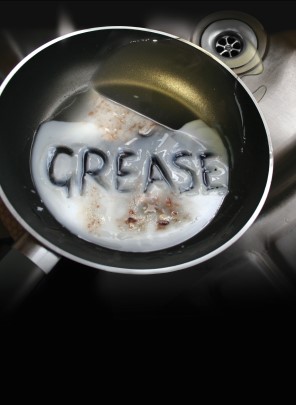 Do you ever notice an unpleasant odor coming from your Omaha and Bellevue kitchen sink drain? Or perhaps you’ve heard an occasional gurgling sound as you hand-wash dishes. These, along with slowly draining water, could mean your pipes have grease or cooking oil build-up.
Do you ever notice an unpleasant odor coming from your Omaha and Bellevue kitchen sink drain? Or perhaps you’ve heard an occasional gurgling sound as you hand-wash dishes. These, along with slowly draining water, could mean your pipes have grease or cooking oil build-up.
Of all the things that should not go down the sink or garbage disposal, fat, grease, and cooking oil are at the top of the list. While grease and oil are in liquid form during and shortly after cooking, they begin to solidify as they cool. Over time it accumulates and attracts food particles that might accidentally make their way past the drain trap.
Why Proper Disposal of Cooking Oils and Grease Matters
As more and more grease builds up in the pipe, it can cause a stubborn clog or, worse, raw sewage to back up into your home or on your lawn. Not only is this a costly and messy problem to fix, it can affect a neighborhood’s water supply should the sewage run into a nearby stream.
Safe Methods for Disposing of Cooking Oils and Grease
So to prevent all that unpleasantness and unnecessary expense, here are some suggestions for properly disposing of cooking oils, fat, and grease:
- Carefully pour liquid grease into a covered container, like a coffee can or jar.
- Scrape food scraps off plates and cookware into the garbage, not the garbage disposal.
- Once cookware has cooled, wipe surfaces clean with a paper towel before washing it in the sink or dishwasher.
- Take collected grease and oil to a nearby grease recycling center. Many will even provide you with a new container to use.
And now, let’s return to your kitchen where you already may have a glob of built-up grease ready to cause trouble inside your drains, or maybe it already has. Either way, Dennis Foley has the experience and advanced drain cleaning tools to clear your kitchen and garbage disposal drains completely. The sooner you act, the simpler the solution will be.






